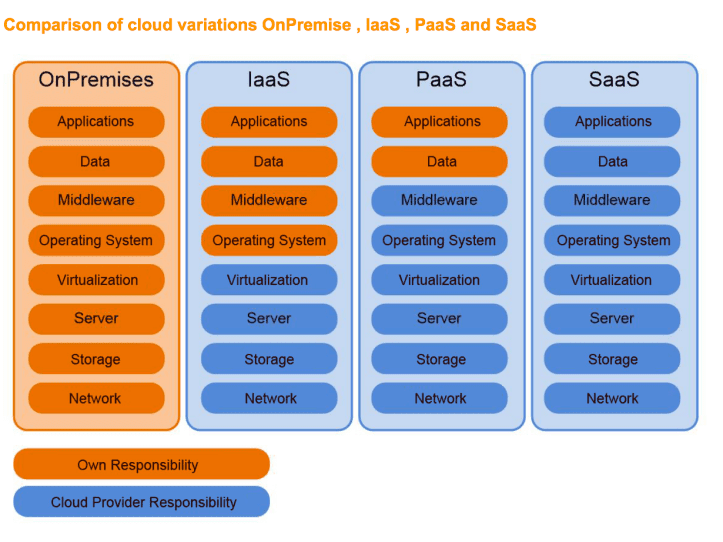
In previous blogs we’ve discussed the latest changes to the ways in which businesses and organisations operate. We know that over the past five years the number of employees working remotely has been increasing steadily. We also know that these numbers have grown exponentially more recently, not least as a result of the Covid-19 pandemic.
Obviously then, these changes are impacting both employers and employees alike. Whilst businesses are being encouraged to allow their workforce to operate remotely, they must also find practical solutions on how best to do so without detrimental impact to their productivity and profit. Thus we arrive at the topic of cloud computing and services. In short, cloud computing means workers are able to access online services from any location, on any device with an internet connection.
Woodstock IT specialise in cloud based solutions, so whether you’re an SME or large enterprise we’ve got you covered. Contact us today to discuss the design, installation and ongoing maintenance of your cloud computing system.
What is cloud computing?
Cloud computing in its simplest form is the delivery of computer services via the internet. Depending on your requirements for cloud services, there are three main branches of cloud computing architecture.
They can be broken down as follows:
Public Clouds:
- Accessed and managed via a web browser
- Owned and operated by 3rd party Cloud System Providers (CSPs) eg. Microsoft Azure
- CSPs own and are responsible for all software, hardware and other supporting infrastructure
Private/Enterprise Clouds:
- Used exclusively by a single business or organisation
- Can be physically located on-site, or hosted by a 3rd party service provider
- Managed and maintained via a private network
Hybrid Clouds:
- A combination of public & private clouds
In reality many organisations have been utilising cloud based technology for years now. Research from the Cloud Industry Forum (CIF) shows that the overall cloud adoption rate in the UK stood at 88% in 2017, with 67% of users expecting to increase their adoption of cloud services over the next year.
Defining cloud services
These services generally refer to software, networking, databases, storage, servers, analytics and intelligence. As the name suggests, services are all linked via the ‘cloud’.
Similarly to cloud computing or architecture, they too can also be sub-categorised into three broad groups:
Infrastructure as a Service (IaaS)
- Pay-as-you-use basis – clients ‘rent’ the infrastructure needed, as and when necessary
- Client is still responsible for managing applications, runtime, OSes, middleware, and data
- Host is responsible for the servers, hard drives, networking, virtualisation, and storage
- Accessed via dashboard or application programming interface (API)
Platform as a Service (PaaS):
- Provides a platform for the creation of software via the internet
- Platform allows developers to quickly and easily design and create applications
- Host is responsible for the maintenance of the infrastructure including servers, network, databases and storage
Software as a Service (SaaS):
- Generally a subscription service
- Most commonly used form of cloud services
- Software delivered via the internet – no installation or download requirement for the client
- Accessed via web browser
- Client has no responsibility for maintenance of infrastructure
- Managed by a 3rd party provider (host)

Also referred to as the cloud computing stack, cloud computing is, as you can see, made up of a variety of services all built on top of each other starting from IaaS up to SaaS.
It’s important to recognise the differences between these categories in order to identify which will be most beneficial to your business. Our IT experts will be able to talk you through the best options for your usage and requirements.
What are the benefits of cloud services?
As interesting as all of the above information is, the bottom line remains the same; how beneficial are cloud services? How will they improve my business? Why change what’s been working for years?
The benefits of cloud services for remote working for businesses can be broken down as follows:
Accessibility & collaboration
It essentially allows users (ie. your remote worker) 24/7 access to services from any location with an internet connection. It also allows multiple users in various locations to collaborate on single documents/programmes/applications simultaneously.
Elastic scalability
This is relevant now more than ever, in times where the ways in which businesses will operate in the future are uncertain. It gives companies not only the flexibility to quickly up or down scale computing power, but also to accommodate drastic changes to the numbers of remote workers.
Scalability can be subdivided as:
- Vertical scaling – Addition of more CPU or memory to an existing server, replacing a server with a more powerful version
- Horizontal scaling (Scale out) – Addition of nodes/servers limiting the number of requests received by a single server
Increased security
Cloud services operate to a shared responsibility model. This in short means that the provider and the user are accountable for different aspects of security. The CSPs are responsible for the security of the cloud and the client is responsible for the data they input to said cloud. In order to maximise the benefits both parties must work together.
Internally, cloud computing also allows administrators within an organisation to easily and remotely control employee access permissions.
Compliance
Closely linked with security, cloud services often include configurations for compliance to ensure that sensitive data is not compromised.
Running costs
The implementation of cloud services greatly reduces the requirement for hardware and infrastructure by:
- Removing the need for on-site data centres
- Reducing/removing the pressure of IT teams to maintain those centres
- Reducing the electricity required to power those centres
This thereby reduces the costs of maintenance considerably.
Performance & reliability
Cloud computing services connect to a worldwide network of data centres which are regularly upgraded and routinely maintained thus boasting superior and more efficient hardware in comparison to a single corporate data centre.
To put this into perspective Microsoft Office 365 (with whom Woodstock IT have partnered) financially guarantees 99.9% uptime. Business continuity, data backup and disaster recovery are also easier and less costly as information can be mirrored on multiple sites across the network.
How Woodstock IT can help with cloud services
Clearly, cloud services have the potential to positively impact your business or organisation on a huge scale. At Woodstock IT we specialise in helping you make the switch with minimal disruption to your services.
As well as implementing your cloud solution, our team of professionals will also train your employees on how to properly use the system, as well as offer ongoing maintenance, support and regular ‘health checks’.
Get in touch to find out how your business could benefit from switching to the cloud today by calling 01403 290 321.


